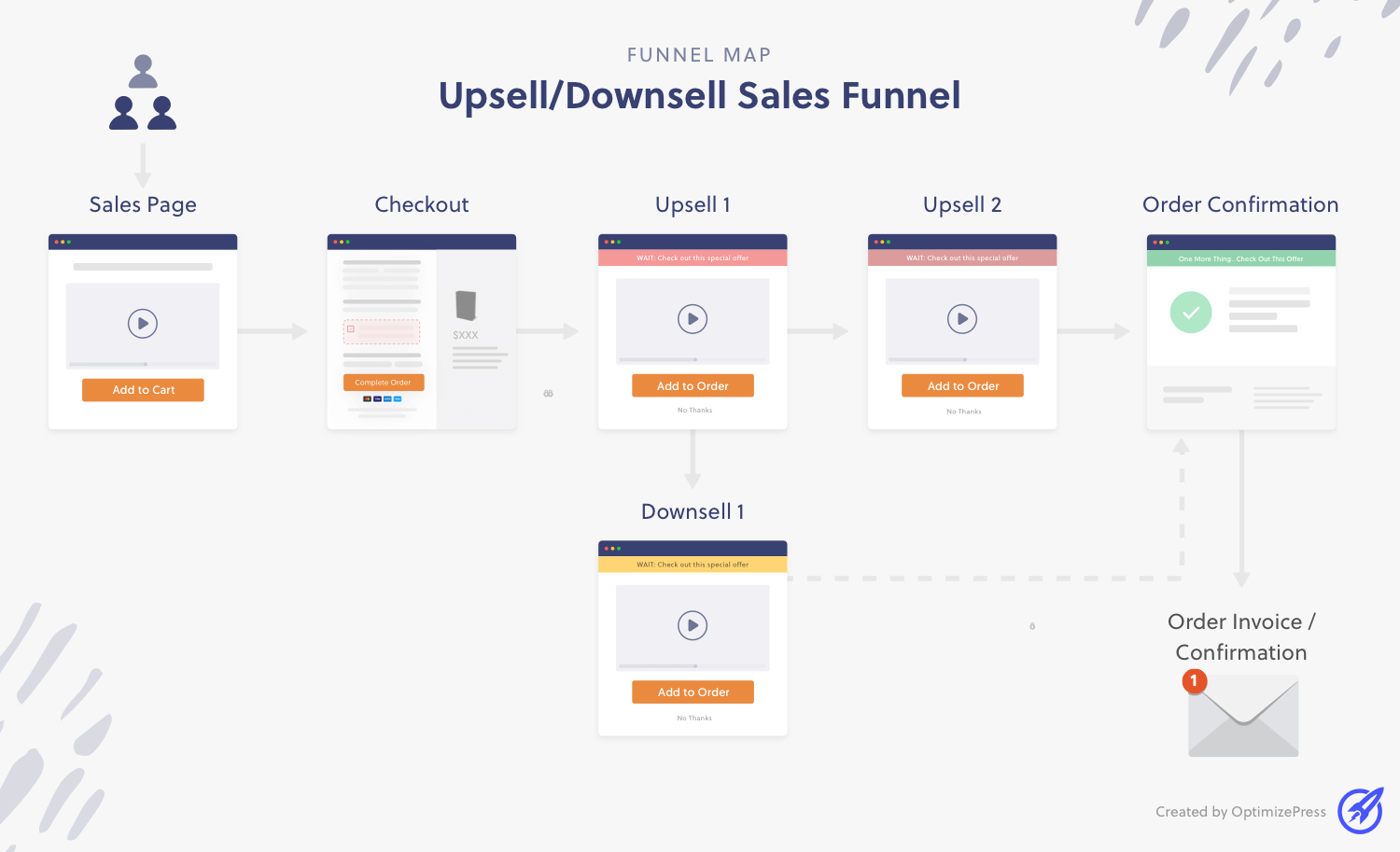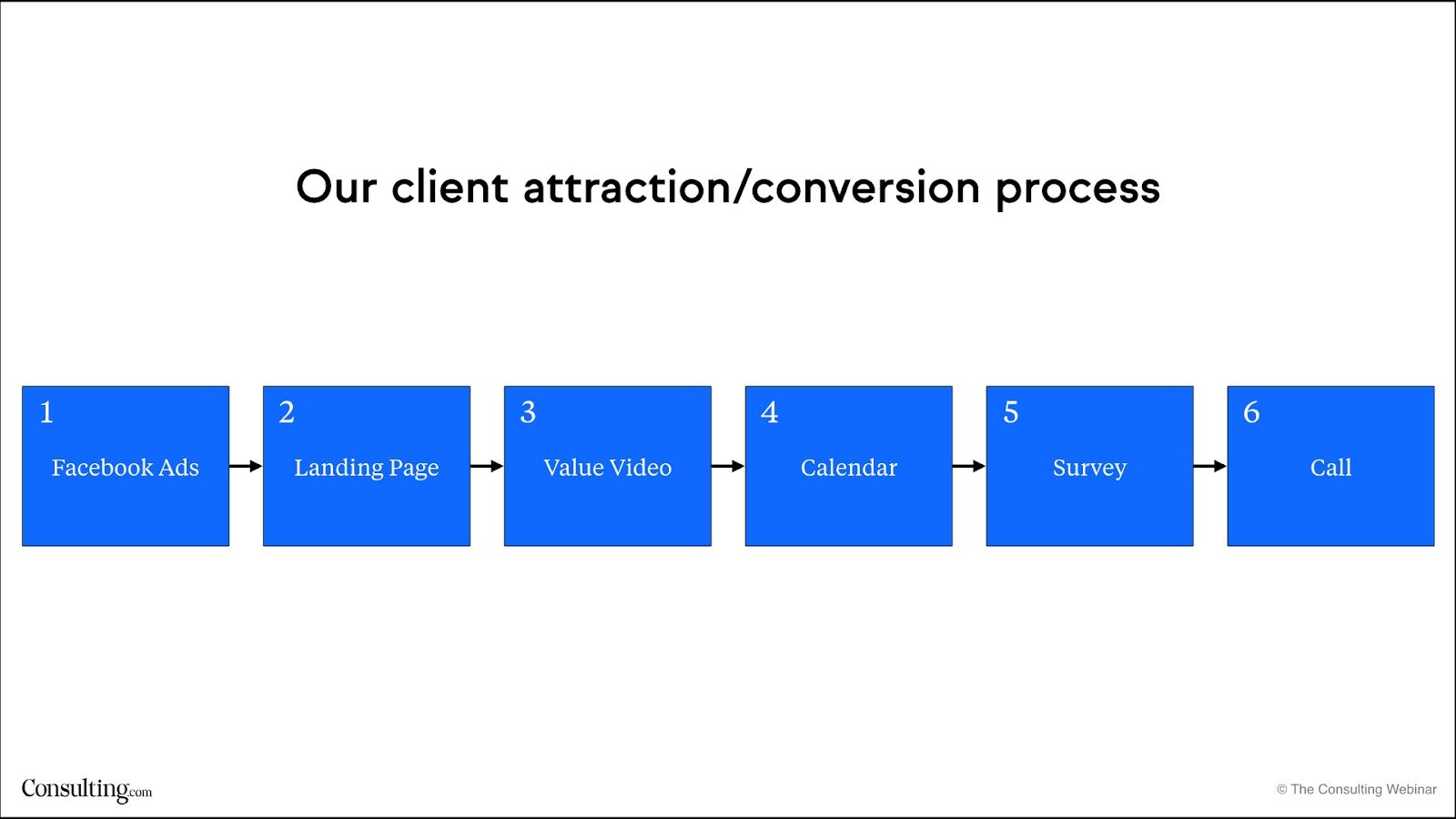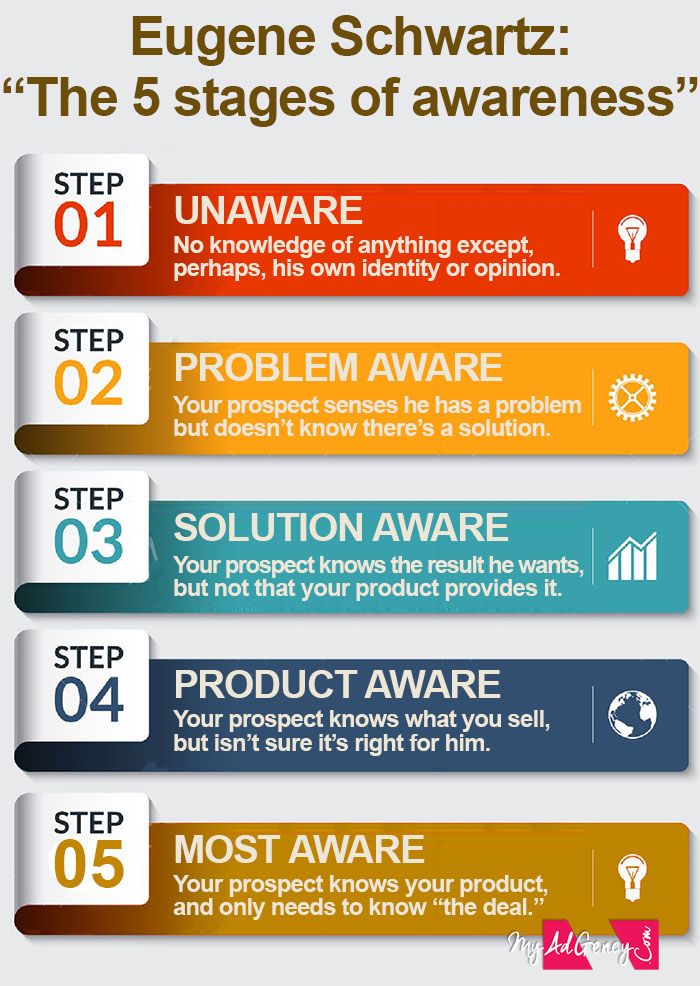How To Sell Online Courses With Facebook Ads: a Complete Strategy
 Platform Review
Platform Review

A complete step-by-step strategy for selling online courses on Facebook using Facebook Ads, taught by someone who sold over $2M in online courses.
Do you want to learn how to sell online courses on Facebook to generate consistent leads and sales for your online course?
Congratulations! you’ve come to the right place!
If you are an online course creator, you likely already know that Facebook Ads can be a great way of promoting your product.
Facebook ads allow you to tap into a network of almost 1 billion active daily users and unlike traditional media, Facebook doesn’t require a 6 figure marketing budget to get started.
The problem is if you are just starting out and you haven’t run any ads in the past, how are you going to create your first campaign? How much money will you need to spend before you can see results? Where to drive traffic?
Well, that's exactly what you will learn in this post and much, much more 😉
Hello, my name is Eryk Osinski. I've been running Facebook Ads for almost 5 years now and I helped one of my clients grow his course from 0 to $2M mainly through Facebook advertising.
I am very excited to share my knowledge and my experience promoting online courses with Facebook Ads.
You can always find an up-to-date index with all the free content available in the Course Creator Academy by clicking on the Academy link on the top menu bar.
Other related posts:
- How To Create an Online Course To Sell (Top 9 Ways)
- 16 Proven & Easy Ways To Market Your Online Course
- How To Promote Your Online Course For Free? (Complete Guide)
- How To Sell Online Courses With Facebook Ads: a Complete Strategy
- How to Sell Online Courses? The Ultimate Guide
When you should (and when you shouldn’t) start with Facebook ads
One of the biggest mistakes most course creators make is they come up with a course idea, they record their lessons and then they just go straight into Facebook Ads.
The result? You burn money.
So why is it that so many course creators (and other advertisers) burn their money on Facebook without seeing ANY results?
It all comes down to two things.
Without these two things it is IMPOSSIBLE to see results with any advertising platform, Facebook included:
1. Having a message that resonates with your target audience
2. Having a validated offer
I understand it may sound confusing so let me break it down and let’s start with a resonating message first.
Imagine you walk into a pub where people are watching a premier league football game, let’s say it is Arsenal London vs Manchester United, the pub is filled with fans, the game begins and you start passionately chatting to other people about your last fishing trip.
What do you think is going to happen? People in the pub are either going to ignore you or they are going to get annoyed at you because you interrupted their game with irrelevant stuff.
Let’s imagine the opposite scenario. You walk into the same pub, the same game begins, Arsenal London vs Manchester United and you start chatting to other people around you about the current state of the Arsenal team, the latest injury of one of the Manchester’s players, the Arsenal’s latest transfer, the current Manchester’s position in the Premier League table, etc…
What do you think is going to happen now? People will happily get into a conversation with you, they will start answering your questions, start asking you questions, and so on.
In other words, you have a resonating message if people in your market can relate to it on a personal level.
Now you understand what a resonating message is but how to actually make sure your offer resonates with your target audience?
The easiest way to create a resonating message is to spend some time with your audience. Find 5-10 Facebook groups, YouTube channels, and Instagram pages where your audience spends their time.
Try to get into one-on-one conversations with them, pay attention to their problems, write down the most frequently asked questions, write down their biggest goals, read comments, and basically try to understand where their attention is.
What are they focusing on?
Once you understand their goals, pains, problems, desires, questions, etc, you will be able to speak in a way that really resonates with them.
Now, onto the second part which is “having a validated offer”. What does it mean to have a validated offer and how do you validate an offer?
Having an offer validation basically means that you know for sure your market is interested in your product and is willing to pay the price for it.
Now you may be thinking, “Okay, but I spoke to my brother, my sister, and my best friends and they all LOVE my course idea and everything about it”, and of course, it is great to have support from your friends and family but their opinion doesn’t really matter.
Their opinion is biased, they know you, they trust you, they love you and it heavily influences the way they think about your idea.
The best way to validate your offer is to get at least 3-5 strangers to PAY YOU MONEY for your product, it is not enough if they say they are interested because there is a huge difference between “I am interested” and “here is my credit card number”.
I really hope you now understand the importance of having solid foundations in your business before you get into Facebook Ads.
The best advertising strategy for online course creators
Facebook Ads can work for so many different businesses in so many different industries but in this tutorial, I want to focus on the best strategies for course creators specifically.
There are two main strategies for promoting online courses, the first one is for “low ticket” courses (from $1 to a few hundred dollars) and the second one is for “high ticket” courses ($1000, $2000, even $10,000+).
Low ticket strategy
I’ve spoken with hundreds of course creators on Facebook, Instagram, LinkedIn, and on one-on-one zoom calls and the problem that I see very often is people try to run traffic directly to their sales page or their website home page.
If running Facebook Ads traffic directly to your sales page or website is your entire marketing strategy, you will most likely end up losing money.
In order to sell low-ticket courses profitably with Facebook Ads, you need to have a marketing funnel and more than just one offer.
A marketing funnel is basically a sales process, it is how you take someone who doesn’t know anything about you to be a happy client.
Here is an example of what a marketing funnel for a low-ticket course may look like.

source: https://www.optimizepress.com/funnel-maps/
Let’s break this funnel down, step by step.
Step #0
It is not on the image above but I decided to include it as it is very popular to start a funnel with a lead magnet page, also called a “squeeze page”. This is the entrance to your business and the purpose of that page is to get someone's attention and build some trust. Free e-books, training, presentations, case studies, PDFs, mini-courses, and challenges are very popular lead magnets.
Step #2
Sales page - After you got their attention and built some trust it is time to ask them to pull up their wallets. This is where you make a small sale - $7, $47, $97, etc. Very often people would drive traffic directly to that page and skip the “squeeze page”.
Step #3
Upsell 1/Downsell 1 - The purpose of that page is to simply ask a customer who had just made a purchase with you to spend even more money in your business by purchasing additional, complementary products.
Step #4
Upsell 2 - The number of upsells is optional and up to you, some people are successful with one, and others have three or even four upsells.
Step #5
Order confirmation page can often be used as another opportunity to introduce even more upsells, here is an example. High ticket offer - Only the most qualified leads will get to the very end of your marketing funnel and this is where you should consider introducing a more expensive offer such as one-on-one consultation, mentorship, or a high ticket program. Notice that I said “introducing” and not “selling”, at this stage of the funnel you could have a booking page where people could schedule a call with you to learn more about your mentorship program
Please keep in mind that this is just an example of what a low-ticket funnel may look like.
It may sound counterintuitive but having success with Facebook Ads is actually a lot easier if you have an expensive product so now, let’s break down the advertising strategy for high-ticket courses.
Selling a $1500, a $2000, or a $10000 product to a complete stranger directly through Facebook Ads without any one-on-one contact is pretty much impossible unless we have a big, trusted brand. So what should you do instead?
For more expensive products, selling doesn’t happen on sales pages, it happens on one-on-one conversations that you can have with your leads on zoom, skype, WhatsApp, etc.
Let’s take a look at the example funnel below that I used with one of my clients in order to build a $2M course with less than $500,000 spent on ads.

Source: https://www.consulting.com
Let’s break it down step by step.
STEP 1: Facebook Ads
STEP 2: A landing page with a lead magnet - The most popular lead magnets for high ticket courses are: free training, seminars, case studies, and presentations.
STEP 3: Value Video - This is where people can watch your training, presentation, seminar, or case study.
STEP 4: Calendar - On this page, prospects who are interested in working with you or buying your course can book a call with you to learn more.
STEP 5: Survey - The purpose of this simple questionnaire page is to qualify prospects and see what call bookings can lead to sales.
STEP 6: Call - This is where you call your prospect, accurately diagnose his/her needs, desires, and problems and sell your course if it is a good fit.
The significance of research before publishing your first campaign
The success of your Facebook campaign will heavily depend on how well you know your audience.
I like to say that 90% of the work on your Facebook campaign should be done outside of Facebook - researching your audience, learning about their pains, learning about their desires, writing down the most frequently asked questions, and finding out what myths they believe in.
This information is much more important than your campaign objective, ad placement, or the type of button that you use.
On top of what I just wrote, it is very important to understand the 5 stages of awareness, take a look at the image below.

source: http://myadgency.com/blog/are-you-pitching-to-a-cold-audience-try-these-5-stages-of-awareness/
It is important to understand where your audience fits in the image below because it will heavily influence the way you speak to them.
Now you understand what information about your target audience you should find out before publishing your first campaign but you may still be wondering where to actually find this information.
Very often, the easiest place to start is your own experience. If you are creating a course on a specific topic in a specific niche, you probably already know a lot about it. For example, if you are creating a yoga course, you probably already know what are the common problems that beginners have, what questions they frequently ask, etc.
Even though personal experience is a great way to start, it can actually be harmful too if you don’t back it up with additional research.
If you already are an expert in a specific topic, it may be hard to put yourself in the shoes of someone who is just getting started.
You may not understand their struggles and you may not understand what’s going through their head. In that case, you will find Facebook groups VERY helpful.
Facebook groups can be a gold mine of information because you can very quickly see what people are talking about, what are the most common problems and what are the frequently asked questions.
Next to Facebook groups, there are also YouTube channels, podcasts, blogs, forums, and Instagram pages.
Expectations for your first campaign
Your first Facebook ads campaign will not work (probably).
I am sorry to crush your dreams but I want you to have the right expectations and the right mindset before you start spending money on ads.
The real work begins AFTER you publish your campaign.
Yes, you read that right.
It is not enough to do solid research, write a very compelling ad copy and create an eye-catching creative.
Don’t get me wrong, you still need to do those things but no matter how hard you try, it is still just a hypothesis.
Once your campaign is up and running and you’ve collected some data, it is time to start making decisions based on the data that you have available.
Identify leaks in your funnel.
If your product costs $1500 and you’ve just spent $2000 on ads it means you don’t have a profitable return on your investment and it is time to identify where the leaks are in your funnel.
In order to analyze your marketing funnel and identify where the weak points are, you should understand what are the average KPIs (key performance indicators) for your niche.
What is the average landing page conversion rate?
What is the average cost per click?
What is the average cost per lead?
What is the average click-through rate?
Once you understand your numbers it is time to analyze your data and see where you need to improve the most.
If the average landing page conversion rate is 20% and you have 3%, you know you need to work on it by improving your copywriting or by making the layout of your page easier to read.
If the average cost per click is $1-3 and yours is $7, you know you need to work on it by testing different ad copies, ad creatives, or target groups.
How much money do you need?
One of my most frequently asked questions among course creators.
How much money do I need?
Can I start with $5 per day?
I personally don’t think any course creator should start spending any money on ads until spending at least $50 per day for 2-4 weeks without seeing results is acceptable.
Testing and optimizing take time.
When you are just getting started you have no idea which targeting group will work, you have no idea which ad copy will work best and which ad creative will catch the attention of your target audience.
You can only guess.
The only way to find out is to collect enough data through testing and optimization which takes time and money.
Okay, so what to do if you can’t afford to spend $50 per day for 2-4 weeks but you still want to promote your course?
There are plenty of organic (free) strategies that you can use, for example leveraging Facebook groups or direct outreach.
Publishing your first campaign
In this section, I want to write about one of the biggest mistakes that most new advertisers make which is not feeding the Facebook algorithm with enough variations.
Variations are extremely important.
Creating one campaign with just one targeting group in it, one ad copy and one ad creative is usually a recipe for failure.
The algorithm on Facebook is really smart, it can very quickly find out what works and what doesn’t but it cannot do its job if you don’t provide enough variations.
So, how many variations do you need?
Well… that depends on your budget.
Simply put - the higher the budget, the more variations you can create but here is a good starting point that you can use:
$100 per day campaign -> 5 ad sets -> 4 ads in each ad set.
$50 per day campaign -> 2-3 ad sets -> 2 ads in each ad set.
Like I wrote above, treat it as a starting point, it doesn’t mean that you can’t have 5 ads and 4 ad sets or 5 ad sets and 5 ads.
Optimizing and scaling
As you already know, in order to achieve success with Facebook Ads, you need to spend some time on your campaigns, it is not enough to just create them, you also need to collect data, analyze it and then make logical decisions based on this data which we will call “optimizing and scaling”.
I understand it may sound complicated but I am going to make this section extremely simple and practical.
If you have profitable campaigns in your ad account (campaigns that spend less money to acquire a customer than the price of your product) you should duplicate those campaigns and create very similar variations.
The key is to keep the duplicated versions very similar to the original campaigns as those are the winning ones.
You can do that by slightly changing the age range of your targeting groups or your budget.
The goal is to have as many active, profitable campaigns in your ad account as possible.
If you have unprofitable campaigns (campaigns that spend more money to acquire a customer than the price of your product) you should keep testing targeting groups, ad copies, placements, and ad creatives.
Conclusions
So in summary, can you sell courses on Facebook?
Facebook ads are one of the best ways to promote your online courses, and for good reason. With over 1.968 billion daily active users, it doesn’t matter what niche you’re in, your customers are on Facebook.
As you can see, achieving success with Facebook ads requires time, patience, and discipline.
If you are not scared or discouraged after reading this post, it means you are getting into Facebook ads with the right mindset.
I hope this post helped you better understand how to sell online courses on Facebook.
If you need more information to grow your online course business successfully, you should check out the Course Creator Academy.
You will find everything you need to become a successful online course creator all in one place for free.
To get notified when new content is available here at the Academy, you can subscribe here to our weekly newsletter:
If you are looking to ask any questions on online course creation, you can reach me here on my Facebook group:
Join the Course Creator Academy Facebook Group
Ready to learn how to launch your first course on OnlineCourseHost.com? Here are the helpful guides for you to check out:
- Best Online Course Platforms (Ultimate Guide)
- How To Create An Online Course (In 15 Super-Practical Steps)
- How To Choose An Online Course Topic That Sells
- How To Record And Edit Your First Online Course
- Affordable Online Course Equipment - Complete Practical Guide
- How To Hire An Online Course Team
- The Ultimate Online Course Launch Checklist
- How To Create The Perfect Online Course Sales Page
- Create A Powerful Brand For Your Online Courses (In 5 Steps)
- How To Sell Online Courses? The Ultimate Guide
- How To Promote Your Online Course - Complete Guide
I hope you found this post helpful; let me know in the comments below what other topics you would like me to cover or any questions that you have.
Thanks for reading… and enjoy the course creation process! 😉
Course Creator Academy, a community by OnlineCourseHost.com
Founded by Vasco Cavalheiro
Online Course Creator








 Start Here
Start Here Course Creation Journey Step by Step
Course Creation Journey Step by Step  Course Creation Software Reviews
Course Creation Software Reviews Online Course Marketing
Online Course Marketing Course Creation Tips & Tricks
Course Creation Tips & Tricks Course Equipment
Course Equipment Online Course Marketplaces
Online Course Marketplaces Revenue Reports
Revenue Reports Best Practices
Best Practices Frequently Asked Questions
Frequently Asked Questions Platform Reviews
Platform Reviews